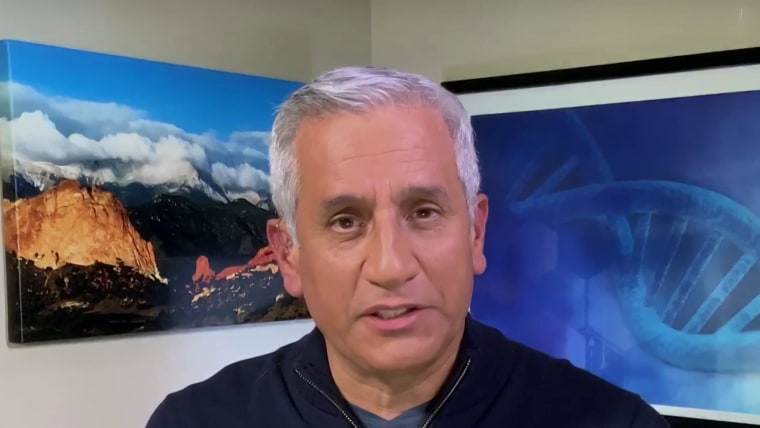[ad_1]
With Covid-19 linked to heart muscle inflammation known as myocarditis, doctors are concerned about patients returning to physical activity safely. Exercising with myocarditis can lead to irregular heartbeats and sudden cardiac death, a well-documented worry with athletes.
But which people who’ve had Covid-19 are at risk? And who should be screened with a battery of heart tests before being cleared for exercise?
Those questions were a main focus of a recent virtual sports medicine conference sponsored by the American College of Sports Medicine, the American Orthopaedic Society for Sports Medicine and the American Medical Society for Sports Medicine.
Full coverage of the coronavirus outbreak
Doctors want to ensure that athletes and recreational exercisers who’ve had Covid-19 can return to physical activity as safely as possible after their recovery, but much still needs to be learned about this new virus, Dr. Carrie Jaworski, director of the division of primary care sports medicine at NorthShore University HealthSystem in Chicago, said at the conference on Dec. 5.
“The main issue is really the cardiovascular implications, which quite honestly we’re still figuring out,” she said.
After doctors first learned that Covid-19 may cause myocarditis, initial recommendations in May from the American College of Cardiology were quite cautious, urging doctors to perform heart screenings on all athletes and other “highly active” people who had been ill with symptomatic Covid-19 before clearing them to return to physical activity.
Cardiac injury is quite common and prevalent among sicker patients who are hospitalized with Covid-19 infection.
But updated ACC recommendations published at the end of October reflected newer information and took a more focused approach, offering tailored return-to-play advice for competitive sports athletes, high school athletes and recreational “masters athletes” — that is, people over age 35 who train for or participate in running, swimming, cycling, weightlifting or other competitions designed for adults in their age category.
Heart risk unclear in milder Covid cases
Overall, the recommendations endorse physician consultations and heart screenings — using electrocardiograms, echocardiograms and troponin blood tests — for athletes who had moderate to severe Covid-19. Heart screening isn’t recommended for people who had cases that were asymptomatic or mild. Mild illness includes symptoms such as headache, loss of taste or smell, cough and sore throat, but not more serious systemic symptoms such as persistent fever, chills, severe fatigue, pneumonia or chest pain.
Cardiac MRIs may be warranted if other heart tests are abnormal or symptoms persist.
“Cardiac injury is quite common and prevalent among sicker patients who are hospitalized with Covid-19 infection, upwards of 20 percent prevalence of cardiac injury,” said Dr. Jonathan Kim, chief of sports cardiology at Emory University in Atlanta, a team cardiologist for the Atlanta Falcons and Braves and a co-author of both sets of ACC recommendations. “It’s important to put that in contrast of other common respiratory viral illnesses, where in even the sickest patients you only see evidence of cardiac injury about 1 percent of the time.”
As a result, people typically haven’t been screened for heart injury after they’ve had most respiratory illnesses, but Covid-19 is a very different disease. And while doctors know that patients with more advanced cases of Covid-19 run a significant risk of heart damage, they know much less about risk in milder cases.
“We still don’t know the prevalence of cardiac injury in athletes or other individuals who are either asymptomatic or who have only mild Covid-19 symptoms,” Kim said. He noted there have been some observational reports in Germany and the U.S. indicating heart injury in people with asymptomatic or milder cases and those have raised concerns, but the full extent of any damage and the implications are still unclear at this time.
“Based on what we’re seeing, no significant cardiac pathology in those individuals who have presented with mild illness, we at present aren’t recommending cardiovascular risk stratification and testing,” Kim said.
Follow NBC HEALTH on Twitter & Facebook.
[ad_2]
Source link
